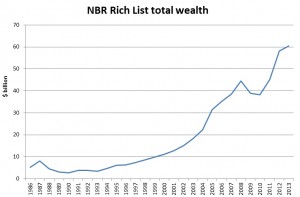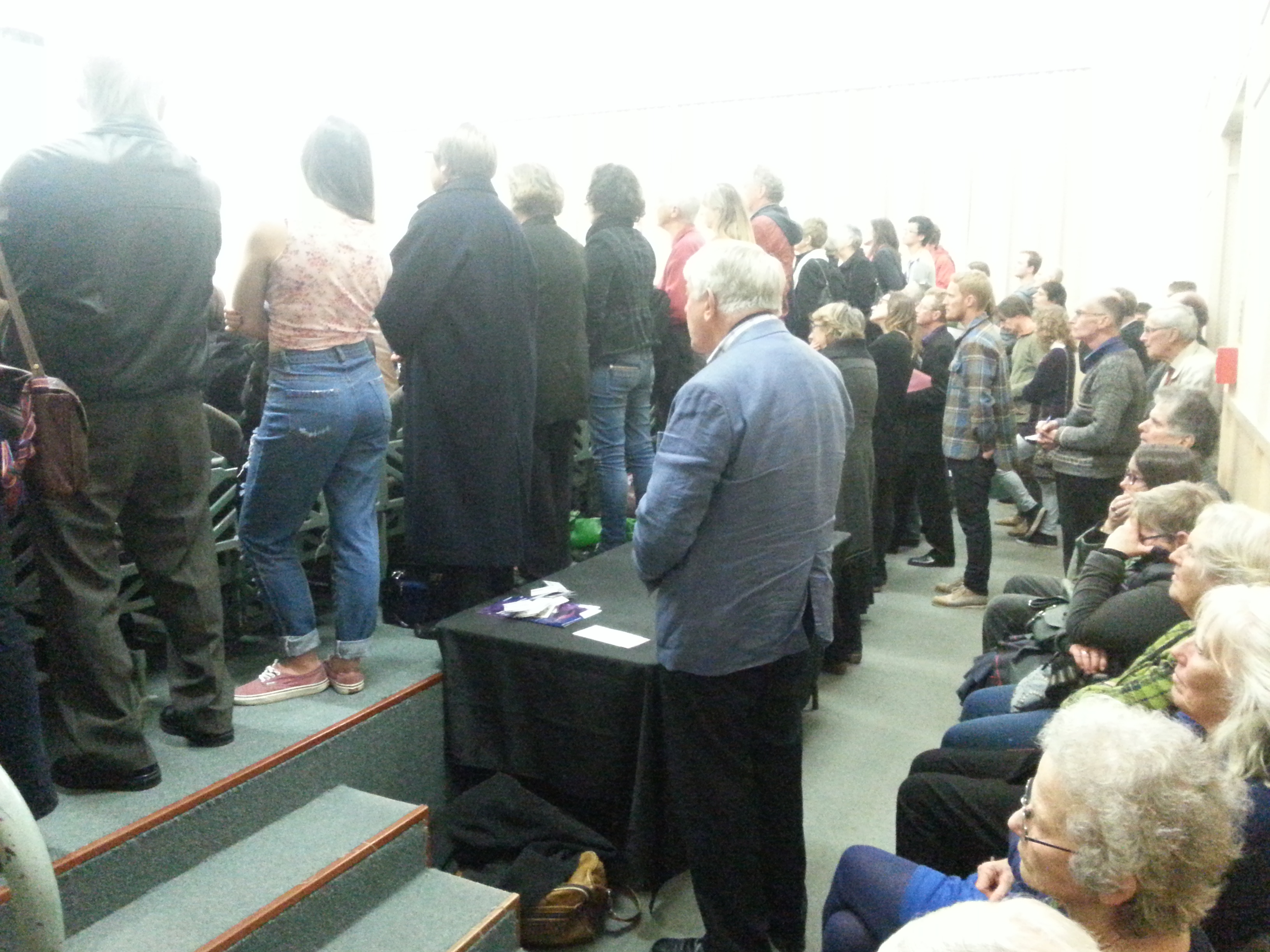Last week I spoke about inequality to 60 or so people in Tauranga. As well as members of the public, three local civic leaders were there: Western Bay of Plenty District Council Mayor Ross Paterson; Bay of Plenty Regional Council Chairman John Cronin; and Tauranga Mayor Stuart Crosby.
They were all asked to respond to Inequality: A New Zealand Crisis, and it was striking to see just how concerned they were about the issue.
Ross Paterson spoke about the need to work with “disadvantaged students and youth” and help them learn the skills they need to move into higher-paying jobs.
He also talked about building community strength through neighbourhood patrols and other means: “It’s just filling that gap that we have got … because of what [the book] is talking about.”
However, local councils’ relatively weak spending and law-making powers mean they had to be a “facilitator” of action against inequality, rather than taking the lead.
John Cronin responded in more personal fashion, saying the book had taken him back to his childhood, growing up in a deprived area of Whanganui. He had been able to escape poverty, but only thanks to “education for everybody … and drive and community spirit”.
Inequality was one of society’s biggest challenges – “it tells us a lot about our priorities” – and local government had to “try to make it better”.
He urged the audience: “We need you to rise up and say we have had enough of inequality.”
Stuart Crosby said one of the worst effects of inequality was the way it restricted many people’s ability to participate in society. His council had little engagement – in submissions and other forms – from its poorest areas, even though they most needed to be engaged. In this situation, the theoretical right to participate was “a fallacy”.
Crosby also questioned why pay rates were so different for different jobs. He asked: “What would the world be like without cleaners?” Yet they were paid as little as $16-17 an hour. Similarly, bus drivers – who could be responsible for the lives of dozens of people – were poorly paid, while CEOs were on $500,000 a year or more.
Cleaners were just as valuable as other workers, but “somehow in this country we have lost that [sense].”
In closing, the meeting’s organiser, Peter Malcolm, said it remained to be seen what the mayors could or would do about inequality – but he promised to keep raising the issue in the run-up to October’s local council elections.


